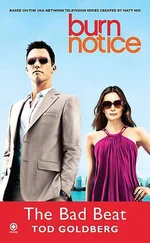“Cosmopolitism,” the reason for Kogan’s dismissal, is, of course, preposterous. By birth, he is a Jew, but he is Russian to the core, a hero of two wars, a partisan in the Civil War, a military surgeon in World War II. Yet he is also proudly cosmopolitan. Having trained in Berlin and Paris, he has the skills that would enable him to practice in any hospital anywhere in the world. He can easily lecture in German and French. Alas, over the preceding two decades, he has had no opportunities to do so. And he has family members in New York and Copenhagen.
The word “cosmopolite” has become another way of saying Yid. Before the Party’s hard line on cosmopolitism, a drunk in the street would call you “zhid porkhatyy,” a rootless Yid. Now, in the newspapers, the epithet of choice is “kosmopolit bezrodnyy,” a rootless Cosmopolite. It’s a simple word substitution, a way of saying the exact same thing without saying “Yid,” a way of making it official, acceptable. This nonsense is getting firmly implanted in the psyche of the people. Kogan feels it as a doctor. On house calls, patients call him bloodsucker, and accuse him of efforts to kill them. As a professional, Kogan doesn’t take this personally, but as a patriot he wonders: Does madness ever recede? Can it get better on its own, without therapeutic intervention?
* * *
Some events in life deepen the dimension of time, as though the brackets that define ordinary instants are spread apart.
The instant of the knock, like the instant of death, can be eternal, and here it is, at exactly 4:39 a.m.
What do we do when the knock comes? Is the final instant of freedom shaped by our past lives? How do we balance the practical considerations against the symbolic? Kogan’s thoughts rush in at once: “Should I remain in my pajamas? Should I put on street clothes? Is there time to change? Has my valise been packed?”
He is not torn by doubts about correctness of the Party line. He is past that. Consider the books that shaped him intellectually and spiritually: he is reading Akhmatova and Tsvetaeva, two poetesses described in the propaganda as “idealess” or worse. Akhmatova is cursed by the official ignoramuses as a “half-nun, half-harlot,” a hybrid heretofore unknown to mankind. “Reading” Akhmatova and Tsvetaeva means continuously, the way a believer reads a sacred text.
Kogan is in possession of Der Process, The Trial , by Franz Kafka, published in Berlin in 1925 by Verlag Die Schmiede, a full decade before the Moscow Trials. (Its original owner was a German medic shot near Stalingrad.) The opening lines were scarily applicable to Moscow of 1953, despite being written nearly four decades earlier: Someone must have been telling lies about Josef K., he knew he had done nothing wrong, but, one morning, he was arrested.
The ending — the execution of Josef K. — seemed even more shocking because it was so amateurish, so homespun: But the hands of one of the gentlemen were laid on K.’s throat, while the other pushed the knife deep into his heart and twisted it there, twice. As his eyesight failed, K. saw the two gentlemen cheek by cheek, close in front of his face, watching the result. “Like a dog!” he said, it was as if the shame of it should outlive him.
Most dangerous, Kogan has developed an obsession with clinical applications of psychoanalysis: interpretation of dreams. That’s about as far as you can depart from medicine based on “scientific Marxism-Leninism.” Rooted in class structure, it rejects the very idea of the significance of troubles of an individual. Mental health is achieved through belonging to a collective. Self-indulgent navel-gazing is harm. A man’s dream is just that. It’s not rooted in class, has nothing to do with his relationship to ownership of the means of production. And obsession with sex is, of course, a capitalist vice.
Something about the spirit of the times makes Kogan read every epidemiology book he can get his hands on at the library of the First Medical Institute. Indeed, he is starting to think of purges as epidemics that start out with a small, concentrated population, then expand their reach nationally, even globally. Once he picked up a blank piece of paper and started to jot down the fundamentals of a discipline he would call politico-historical epidemiology.
One of the models he gleaned from epidemiology is that epidemics of infectious diseases can reach the peak, but then inevitably start to recede. How is Fascism not an infectious disease? How is Stalinism not a plague?
Events outside the window and in his own life convince Kogan that the climax is still far away. Things can get much worse. But what are we dealing with? Is this outburst of ignorance and hatred akin to systemic disease? Alternatively, this disease could have a single source that sends pathogens throughout the system. What if you find a way to intervene and neutralize it?
Is a therapeutic intervention possible? Of course, Kogan knows what this means. Murder. He took lives in his pre-medical past, and he has no apologies, no regrets for having done so. Perversely, he hopes that his old friends, now under arrest, were plotting to kill that old brigand Stalin. Alas, they probably were not.
Is violence an option?
Kogan knows that after three decades of saving lives as a physician he lacks the fortitude required to return to taking lives. He will be dignified, polite, professorial. Perhaps he will even use the arrest as a way to ennoble his oppressors. They are the enemy, nominally, but they are still Red Army soldiers, the grandsons of the men who served alongside Kogan during the Civil War, the sons of the men he operated on in field hospitals during World War II.
Rumor has it that the old brigand isn’t in the best of health. What happens when the devil finally takes him? Will this disease start to recede?
Kogan went through these constructs a week ago, after a hellish day at the ER.
After jotting down the fundamentals of what he jokingly called “politico-historical epidemiology,” he went into the bathroom, struck a match, burned the piece of paper containing the fundamentals of this new discipline, and, with a flush, sent the ashes to the Moskva River, Volga River, and — ultimately — the Caspian Sea.
* * *
And now, at 4:39 a.m., the knock.
He thought he had a week. Are they playing with their kill? Has someone turned him in? Is anyone aware of Kogan’s ideological deviations? Has his turn come? How could it not? It’s a simple progression: cosmopolitism, expulsion from the Party, loss of administrative and teaching positions, followed by what? Trumped-up charge of negligence in patient care? Accusations of medical murder? (The so-called Kaplan case seems to be just that.) Has time come to an eternal standstill? Will it always be 4:39 a.m.? Will 4:40 a.m. ever come?
Usually, it’s the wife’s lot to pack the husband’s briefcase for the journey “over there.” A classically packed briefcase contains a toothbrush, an extra pair of glasses, a pair of socks, underwear, a small sewing kit, and medications. He never got around to packing that bag, warranted though this action was, and now, in eternal mid-knock, it is too late. Is this his last contorted vestige of loyalty to Dusya, an intestinal torsion of loyalty?
In an odd way, he looks forward to being shipped over there, to the Siberian woods. This wish doesn’t mirror a cancer patient’s desire to die. Death happens only once. Hence its mystery. For Kogan, Siberia is a place altogether devoid of mystery. For a full year, he lived a partisan’s life along the Trans-Siberian Railroad. Before he took the oath to do no harm, before he became Dr. Kogan, he was Sasha pulemetchik , Sasha the machine gunner.
Читать дальше












